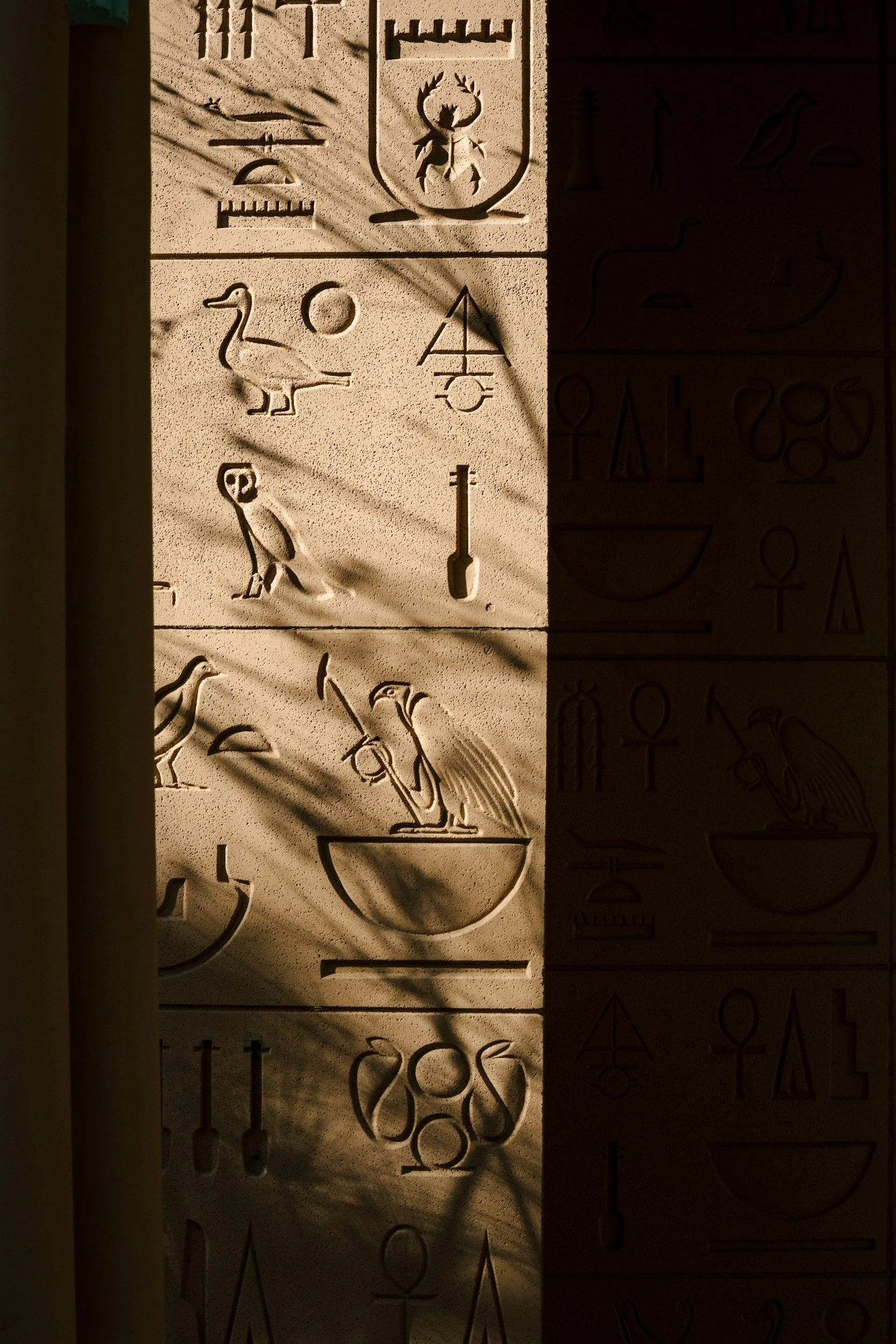Ekwe O Su: The Principle Behind the Ekwensu in Igbo Cosmology
In today’s world, Ekwensu as a force in Igbo cosmology is mostly misunderstood and mischaracterized, especially in modern religious interpretations. However, a deeper exploration of the principle behind "Ekwe O Su" reveals highly relevant spiritual and moral lessons encoded within the concept of Ekwensu. To grasp the significance of Ekwensu, one must first understand its linguistic roots and the cosmological framework within which it operates.
What is the Name Ekwensu?
Lets borrow an analogy from Emmanuel Kaanaenechukwu Anizoba (EZEANA, ABÖSHÏ-UDUGHUDU-NGAGWU-DÏ-IGBO-EGWU) to break this down. In his analogy, the name "Ekwensu" in Igbo language can be broken down as follows:
"E" – This is an impersonal subject marker in Igbo, indicating an unspecified subject, such as "one" or "something." For example, "E delü" translates to "One wrote" or "It was written," with no specific reference to who performed the action.
"Kwe" – This is the Igbo verb meaning "to agree." It reflects a form of consent or decision-making, as seen in the phrase, "Kwe na ï ga-eme ya," meaning "Agree that you will do it."
"Su" – This is the verb that means "to begin suddenly" or "to break out." It is usually associated with something disruptive, such as commotion or war. For example, "Agha e-su" means "War breaks out."
Thus, "Ekwensu" can be translated as "If one agrees, then something breaks out." This simple phrase carries a profound truth about the nature of choice, consequences, and moral responsibility in Igbo spirituality.
The Principle of Cause and Effect
In the Igbo worldview, the universe operates according to a series of natural and spiritual laws, which apply equally to all. These laws are not arbitrary; they are the fabric of reality itself, governing everything from physical actions to spiritual interactions. The principle behind "Ekwensu" emphasizes that for every action, there is a corresponding consequence. If one chooses to violate or disregard these natural laws, then chaos, represented by the breaking out of commotion, follows.
Ekwensu, therefore, is not inherently an evil spirit as often misinterpreted in Christianized or colonial narratives. Instead, Ekwensu is the embodiment of this natural law of cause and effect, a force that reminds people and communities that their actions have consequences. It is not Ekwensu that causes the chaos; rather, it is the individual who, through their agreement (E kwe) to break the law, triggers the commotion (e Su).
Ekwensu as a Teacher of Consequence
One of the most important aspects of Ekwensu in Igbo cosmology is its role as a teacher and executor of consequence. Ignorance of the law does not annul the consequences that follow from breaking it. This is why Igbos believe that one's actions—whether intentional or unintentional—set off a chain reaction. Ekwensu is the force that ensures balance is restored when these laws are violated. The consequences can manifest in various ways, from personal misfortune to communal unrest.
For example, if someone acts out of greed, dishonesty, or violence, they have effectively "agreed" to the consequences of those actions, even if they did not fully understand or anticipate the outcomes. Ekwensu, as a force, makes sure that the resulting chaos is experienced, not as a punishment, but as a natural balancing of scales.
Ekwensu and Human Free Will
In Igbo cosmology, humans are granted free will and the ability to choose their actions. This freedom, however, comes with the responsibility to align with the laws of nature and spirit. The principle of "Ekwe O Su" highlights the interplay between free will and consequence. If one chooses to act out of alignment with cosmic law, they are effectively consenting to the resulting disorder. Ekwensu, then, is not just a force of destruction but a reflection of the choices made by each person.
This also explains why Ekwensu is sometimes associated with warfare or sudden disruption. War, in Igbo thought, is not inherently evil; it is a natural outcome of unresolved conflicts or violations of sacred laws. When harmony is broken, war "breaks out" as a way to restore balance. Similarly, Ekwensu represents the sudden eruption of consequences when divine or natural law is violated.
The Role of Ekwensu in Moral and Spiritual Development
Ekwensu plays a vital role in moral and spiritual development within Igbo cosmology. It serves as a reminder that actions have weight and that the universe is governed by principles of balance and reciprocity. Being aware of and respecting the laws that govern life can help each person avoid the commotion that follows from violations.
Moreover, Ekwensu is a force that pushes people to greater self-awareness and accountability. In many ways, it is a spiritual force that helps people recognize the impact of their choices. It encourages introspection and the cultivation of wisdom to navigate life in alignment with cosmic laws.
Ekwensu in Contemporary Interpretations
Unfortunately, colonial and Christian interpretations of Ekwensu have largely demonized the concept, equating it with Satan or evil. This misrepresentation ignores the nuanced and deeply spiritual role that Ekwensu plays in Igbo cosmology. Rather than being an embodiment of evil, Ekwensu is a force of balance, that ensures actions are met with appropriate consequences.
In contemporary practice, the principle of "Ekwe O Su" remains relevant as a reminder that free will is a double-edged sword. While we all have the freedom to make our own choices, we must also accept the consequences that follow. Ekwensu, in this sense, is a cosmic principle that ensures justice and equilibrium are maintained in the universe.
To Sum It Up
The principle behind Ekwensu in Igbo cosmology teaches a fundamental truth about life: our actions have consequences. It is a force that reflects the balance of cosmic law, seeing to it that people take responsibility for their choices. Through "Ekwe O Su," we learn that ignorance of the law does not protect us from its effects and that by aligning with spiritual and natural laws, we can avoid the commotion that inevitably follows from their violation.
Ekwensu, far from being a malevolent force, is a reminder of the importance of living in harmony with the universe. It is a reflection of free will, moral responsibility, and the inevitable consequences that follow our actions. In this way, Ekwensu serves as both a teacher and a force of balance in the Igbo cosmological framework.
Let us know what your thoughts are on this topic in the comment section below. Share this post and help us spread the insights with others. Dalu!
Recommended Resources:
Igbo Spirituality in Contemporary Nigeria | Emeka Ed Kaezor in Conversation with Nnaedozie Umeh (YouTube)
The concept of ‘Ekwensu’ in Igbo cosmology | Ifesinachi Nnabugwu (Article)
EKWENSU IS NOT THE DEVIL | Prince MacDonald Enwere (Article)
Ekwensu as Ora Obala in Afa | Odinani Mystery School











